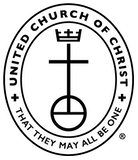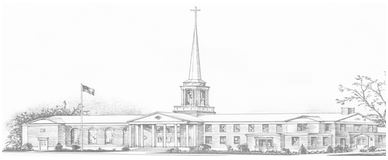MESSAGE – WHICH ONE DID THE FATHER’S WILL? – Sunday September 27, 2020
SCRIPTURE READING Matthew 21:23-32
Years ago, a classmate of mine was invited by a colleague to come and visit the congregation my other friend was serving. He showed up incognito, a black guy rather shabbily dressed and shuffling in the door of a mostly white church as if he were rather confused.
I’m pleased to report that congregation passed the test of hospitality and treated him well. But I must admit, that as I deal with the “interesting” cast of characters who come my way in a typical day, I need often to remind myself that they are Jesus in disguise.
There are two parts to this reading today, although they blend together into a single whole. The first is a reminder of the adjustment we need to make in our reading of scripture because we do not live in Jesus’ day.
It’s sort of like the argument about how best to translate scripture: Is it better to translate as literally as we can, or should we try to paraphrase in a way that captures the meaning more vividly? We are rightly a little leery of more free-ranging paraphrases because the translator by necessity is making choices for us which may or may not be supported by the facts.
But, even a literal, as close as we can make it, word for word translation does not remove that problem. It just transfers it to be filtered by own biases and preconceptions
I remember my frustration with one of our puppies years ago. I’d point at something and say, “Look, there!” And she would persist in staring at the end of my finger.
There’s a Zen saying, Don’t confuse the finger pointing to the moon for the moon itself. And often in our grasping to understand we tend to read scripture that way.
I’ve talked before about how we often misinterpret these stories of Jesus interacting with the elders and chief priests and scribes and pharisees. For so many centuries we have cast them in the role of the villain; they are the bad guys.
But we need to be reminded again and again, that in many ways they are us.
They are the voices of law and order and respectability. They are the good religious folks, who never miss a church service, and fill the pews and make the TV evangelists and prosperity preachers rich.
“Jesus. who gave you the authority to rock the boat?”
And it is a fascinating look at human nature as they dance around the question he raises in return. The more things change, the more they stay the same! So often we find ourselves balancing our interest in what is right and true with what is expedient, and what will play to our audience.
And I know firsthand how that applies to us preachers and church leader types. And that does make me wonder about others.
But that moves us into the second part of today’s reading, the question about the two brothers, that gave me the title for this message, “Which one did the father’s will?”
And we instinctively know the answer as well as those 1st century pharisees did. The one who actually DID what his father asked.
Talk without action doesn’t mean much.
It’s bad enough when we talk a good game and don’t get around to the doing of it. But it does get worse. Sometimes not only do our actions fail to live up to what we say we are about, sometimes they actually undermine and work at cross-purposes to what we say we believe.
What you do speaks so loudly I can’t hear what you’re saying!
Quote attributed to Gandhi, “If it weren’t for Christians I’d be a Christian.”
The question before us is always, What are we doing to embody the love of God we talk about so much? As Christians, we claim that love is shown most clearly in the example of Jesus.
Some years back, there was a bit of a fad around the abbreviation WWJD, standing for “”What Would Jesus Do?”
In spite of its overuse, and in spite of the reasonable quibble from some that if we would WWJD – Walk With Jesus Daily, we wouldn’t have to wonder WWJD – What Would Jesus Do?
Jesus, the one who spoke truth to power.
Jesus, the one who ate with tax collectors and sinners,
Jesus, the one who surprised folks again and again by speaking of God’s love for those who were outcasts, and disenfranchised and disadvantaged, and sick and broken and hurting.
What would Jesus do?
That remains a good question to guide us in or choices and our actions.
In the name of God,
our creator, redeemer and sustainer.


